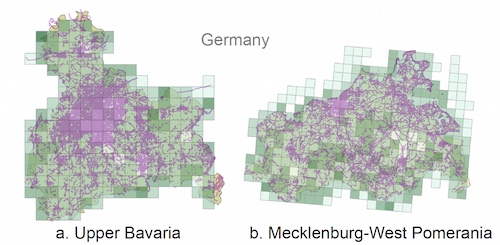The assessment of the quality of volunteered geographic information (VGI) is cornerstone to understand the fitness for purpose of VGI in many application domains. Most analyses focus on the geometric and positional quality, and only sporadic attention has been devoted to the interpretation of the data, i.e., the communication process through which consumers try to reconstruct the meaning of information intended by its producers. Interpretability is a notoriously ephemeral, culturally-rooted, and context-dependent property of the data, concerning the conceptual quality of the vocabularies, schemas, ontologies, and documentation used to describe and annotate the geographic features of interest. To operationalize conceptual quality in VGI, a new framework by Ballatore & Zipf outlines proxy measures to several facets of conceptual quality, including accuracy, granularity, completeness, consistency, compliance, and richness. A case study on a European sample of OpenStreetMap, focused specically on conceptual compliance, showing the considerably spatial variability of the data.

Ballatore, A. and Zipf, A. (2015): A Conceptual Quality Framework for Volunteered Geographic Information. COSIT - CONFERENCE ON SPATIAL INFORMATION THEORY XII. October 12-16, 2015. Santa Fe, New Mexico, USA. Lecture Notes in Computer Science, pp. 1-20. (accepted).
http://www.geog.uni-heidelberg.de/gis/publikationen_conference_en.html


